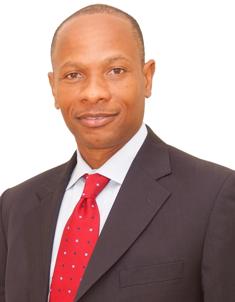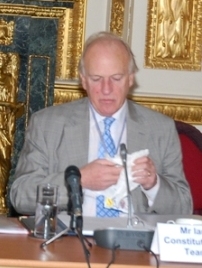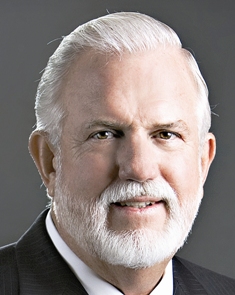Archive for May 21st, 2010

Brackers pull together to find missing teen
(CNS): Around 50-60 local people volunteered to join the hunt for a missing teenage boy this weekend resulting in the youngster speedy recovery. Following a report that the 14-year-old boy was missing from his home on Cayman Brac on Sunday morning 16 May 2010, police launched a search and contacted friends and family in an effort to locate him. The police co-ordinated an island-wide search. The search included beaches, parks, bushes and buildings. As a result, the boy was found safe and well, at 6.00pm in the Southside Road West area. A short time later he was reunited with his family.

Dog me, flog me, but please don’t blog me!
It’s great that Cayman’s news media is evolving into something resembling modern journalism—thanks mostly to Cayman News Service. But it’s all happening so fast that many people are not yet up to speed on the terminology. Is there anything sadder than someone screaming about a topic they don’t understand? Read on and learn how to make sure you never sound like an idiot.
I humbly offer this review of terms in order to help prevent more embarrassing vocabulary stumbles like the one Premier McKeeva Bush suffered through last week when he launched his now infamous attack on free speech, freedom of the press, and Freedom of Information. While the focus rightly has been on his backward ideas about free speech and journalism, it is also important to point out that he does not seem to understand the differences between basic forms of published writing. And he is not alone.
This viewpoint is not a reaction to the substance of Premier Bush’s outrageous temper tantrum. I’ll leave that to others because it’s also important to pay attention to the widespread misuse and misunderstanding of terms when talking about journalism. It’s crucial that everybody speaks the same language before they begin arguing. If we are debating the proper writing styles of journalists, but you are referring to editorials and I am referring to hard news stories, we will never get anywhere. This is a common problem in Cayman. Hardly a day goes by without one or more callers—and often the hosts—of local radio talk shows incorrectly applying the terms “blog”, “editorial”, “commentary”, “news article”, etc.
This matters because it confuses things and it’s also laughable to informed people when someone rants on and on about a newspaper’s editorial being biased in favor of one view. Uh… that’s the point of the editorial. It’s supposed to be a reasoned persuasive argument in favor of a specific position.
Another mistake repeated constantly in Cayman is mistaking comments posted on a news web site for “blogs”. A blog is a Web page or pages set up by an individual for the purpose of writing about whatever it is he or she want to write about. Cayman News Service is not a blog. It is a news Web site. The user comments posted at the end of news articles and viewpoints are not blogs. They are simply “comments”. When Premier Bush’s head was on the verge of exploding as he railed against the “the bloggers” and threatened economic terror against them, Ms Nicky Watson and Cayman News Service should have said, “Okay, whatever, we’re not a blog. He ain’t talking to us.”
People in Cayman are forever confusing “commentaries”, “editorials” and “viewpoints” with news articles. Unlike news articles, “commentaries”, “editorials” and “viewpoints” are never meant to be objective and unbiased. They are by definition slanted and biased. The authors of those forms of writing are taking a stand on one side of an issue. They are not supposed to be objective. (Unless, of course, the writer is a spineless worm and spends a few hundred words never making a point or arguing for anything. These space-wasters have traditionally been common here, sadly.)
News articles are supposed to be objective and unbiased. Few are, however. It is difficult to keep bias out of news because biased people are the ones who write them. But any good reporter will at least try very hard to produce work that comes close to being objective. Simply showing up or not showing up at a press conference is a form of bias, for example (you are important enough to listen to—or not). Attacking obvious slants in a hard news story is reasonable and an important duty for all of us. Getting all worked up over the presence of opinion in a CNS viewpoint is not just wrong, it’s embarrassing. Don’t do it.
It may surprise some readers, but I believe Premier Bush ought to be forgiven for not knowing what a blog is. He has more important things to worry about, such as running our country and figuring out which in-flight movie he is going to watch next. Besides, it’s common for politicians to be utterly clueless when it comes to the Internet. For example, US Senator John McCain reportedly has never sent an email in his life. And former president George W. Bush famously said while in office that he likes to “use the Google on the Internets”. Oy vey…
But the rest of us have no excuse. We live in the real world and can’t afford to sound like idiots if we hope to be taken seriously. If you want to defend—or attack—free speech, freedom of the press, and the wonderful wilderness that is the Internet, go for it, but at least know some of the basic terms before you open your mouth.
HSA partners with local charity in child abuse fight
(CNS): The Heath Service Authority will be employing a part time child psychologist to help in the battle against child abuse as a result of a grant from Hedge Fund Care. Medical Director Dr Greg Hoeksema explained the HSA has been in need of a second psychologist for more than three years and applied to the well-known charity for help. The authority was rewarded with the funds to bring in a part time specialist who will be focusing on the front line of Cayman’s growing child abuse problem. From supporting child and family services to identify children at risk and assisting law enforcement in the prosecution of cases, Dr Hoeksema said the new practitioner should be joining the hospital in the next few weeks.

Local lawyers talk information exchange
 (CNS): In contrast to persistent beliefs around the world Cayman reveals a considerable amount of information and has done for a long time, a local senior litigation lawyer explained at a recent conference. Explaining how information is released under its Tax Information Exchange Agreements (TIEAs), Hector Robinson, Partner at Mourant de Feu & Jeune in Cayman, set out the legal framework to a seminar audience of finance professionals recently. Advising delegates what to do if served with a request from the regulatory body relating to Cayman’s 17 TIEA he pointed out that Cayman had been exchanging information with the US since 2005.
(CNS): In contrast to persistent beliefs around the world Cayman reveals a considerable amount of information and has done for a long time, a local senior litigation lawyer explained at a recent conference. Explaining how information is released under its Tax Information Exchange Agreements (TIEAs), Hector Robinson, Partner at Mourant de Feu & Jeune in Cayman, set out the legal framework to a seminar audience of finance professionals recently. Advising delegates what to do if served with a request from the regulatory body relating to Cayman’s 17 TIEA he pointed out that Cayman had been exchanging information with the US since 2005.

Info boss orders key release
 (CNS): Information Commissioner Jennifer Dilbert has ordered the Cabinet Office to release transcripts of the Constitutional negotiations. In her fourth decision made under the Freedom of Information Law, 2007, Dilbert considered that access to an issue as important as the country’s Constitution was in the public interest and found no evidence that it would cause harm. The FOI application asked for the transcripts of the three rounds of talks that took place over the course of 5 months, from September 2008 and February 2009, between Cayman Islands representatives and the UK’s Foreign and Commonwealth Office over what should be included in the new Constitution. The Cabinet Office withheld the release on four separate grounds, including prejudice of public affairs.
(CNS): Information Commissioner Jennifer Dilbert has ordered the Cabinet Office to release transcripts of the Constitutional negotiations. In her fourth decision made under the Freedom of Information Law, 2007, Dilbert considered that access to an issue as important as the country’s Constitution was in the public interest and found no evidence that it would cause harm. The FOI application asked for the transcripts of the three rounds of talks that took place over the course of 5 months, from September 2008 and February 2009, between Cayman Islands representatives and the UK’s Foreign and Commonwealth Office over what should be included in the new Constitution. The Cabinet Office withheld the release on four separate grounds, including prejudice of public affairs.
Cayman shoppers wave goodbye to the plastic bag
(CNS): All three of Cayman’s leading supermarkets have reported a great response from their customers in the goal to eliminate the plastic bag. Following the announcement that Fosters, Kirks and Hurleys had all got behind the Cayman BECOME campaign, launched at the beginning of April, and would be charging 5 cents for plastic bags from in June, shoppers are turning to reusable bags. All three grocery stores say that sales of their shopping bags have soared and even before the free ride on plastic bags is over shoppers are turning their backs on plastic.

Petrie and team take on Cayman’s relentless pest
 (CNS): Experts at the Mosquito Research and Control Unit (MRCU) say they are winning the battle in the islands’ early seasonal mosquito emergence. The outbreak of mosquitoes was a result of short heavy rains in early April before the MRCU could cover the islands’ swamp lands with pellets. Although two or three localised areas in Grand Cayman remain, MRCU Director Dr William Petrie said the problem has been brought largely under control. Despite what people may think, Dr Petrie said, this was a natural issue and not a financial one and the outbreak was not down to budget cuts.
(CNS): Experts at the Mosquito Research and Control Unit (MRCU) say they are winning the battle in the islands’ early seasonal mosquito emergence. The outbreak of mosquitoes was a result of short heavy rains in early April before the MRCU could cover the islands’ swamp lands with pellets. Although two or three localised areas in Grand Cayman remain, MRCU Director Dr William Petrie said the problem has been brought largely under control. Despite what people may think, Dr Petrie said, this was a natural issue and not a financial one and the outbreak was not down to budget cuts.

New plan for young offenders
 (CNS): Cayman’s juvenile offenders could be held in progressive, modern cottage-like units rather than in a more traditional security institution, the Minister for Community Affairs has revealed. Mike Adam told a meeting of the Young United Democratic Party that his ministry was examining a modern type of young offenders’ centre that had been pioneered in the state of Missouri and had enjoyed some of the highest rates of success in the entire United States when it came to juvenile offenders. Adam said that $2 million had been allocated in the 2010/11 budget to begin the work on the centre which had a target completion date of 2013 and would be located in East End on the site of the former prison farm.
(CNS): Cayman’s juvenile offenders could be held in progressive, modern cottage-like units rather than in a more traditional security institution, the Minister for Community Affairs has revealed. Mike Adam told a meeting of the Young United Democratic Party that his ministry was examining a modern type of young offenders’ centre that had been pioneered in the state of Missouri and had enjoyed some of the highest rates of success in the entire United States when it came to juvenile offenders. Adam said that $2 million had been allocated in the 2010/11 budget to begin the work on the centre which had a target completion date of 2013 and would be located in East End on the site of the former prison farm.